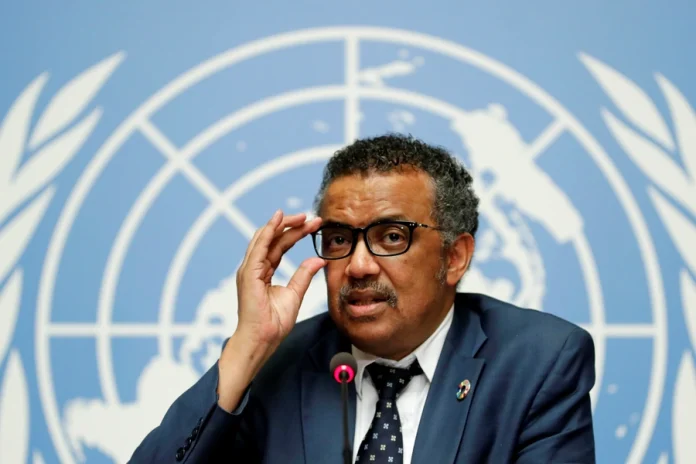News Investigators/ The World Health Organisation (WHO) said more than 30 million children did not receive the full course of vaccines they needed.
Its Director-General, Tedros Ghebreyesus, made the disclosure during an online media conference on global health issues.
Mr Ghebreyesus said that for measles, one of the world’s most infectious pathogens, global coverage went up slightly in 2024.
`In 2024, 60 countries experienced significant measles outbreaks, nearly double the number in 2022.
`While lack of access is one major problem for vaccines, vaccine hesitancy is also a widespread concern for some.
“WHO and other public health organisations have detailed information on their website to help families understand vaccines.
“Which has saved millions of lives since the development of the smallpox vaccine over 200 years ago,’’ Ghebreyesus said.
WHO boss said that the organisation and UNICEF’s recent annual report on estimates of national immunisation coverage around the world showed both progress and pressing challenges.
“While there has been modest growth in vaccine coverage globally, an estimated 14.3 million children never received a single dose of any vaccine, and millions more received only partial coverage.
“Not surprisingly, children living in one of the more than two dozen countries affected by conflict or humanitarian emergencies are at particularly high risk of missing out on life-saving immunisations,’’ he said.
Mr Ghebreyesus said that on July 14, WHO inaugurated a new guideline on the use of Lenacapavir, a breakthrough prevention medicine that can help turn the tide on HIV.
According to him, HIV protection from injectable Lenacapavir lasts for six months and prevents more than 96 per cent of new infections.
“WHO and partners are working with nine early adopter countries so that up to two million people will be able to access Lenacapavir at a negotiated lower price.
“Six generic manufacturers are in the process of developing Lenacapavir, and by 2027, generic versions will become more widely available,’’ he said.
Mr Ghebreyesus said that WHO was working with the early adopter countries and global partners to make the use of Lenacapavir a reality, including through guidelines and the pre-qualification process.
Also, he said that WHO was proud to have certified Suriname as malaria-free.
“That makes 47 countries and territories to have received certification, with more on the way.
“We have also recently validated the elimination of trachoma as a public health problem in both Burundi and Senegal.
“This brings the total number of countries that have eliminated at least one neglected tropical disease to 57,’’ he said.
According to him, July 25 is World Drowning Prevention Day.
He said that every year, hundreds of thousands of lives are lost to drowning.
“Most of these are preventable deaths, often of children and young people in low- and middle-income countries.
“WHO is working around the world to support countries, communities and parents to take low-cost, evidence-based measures to save lives and protect future generations,’’ Ghebreyesus said.
NAN


